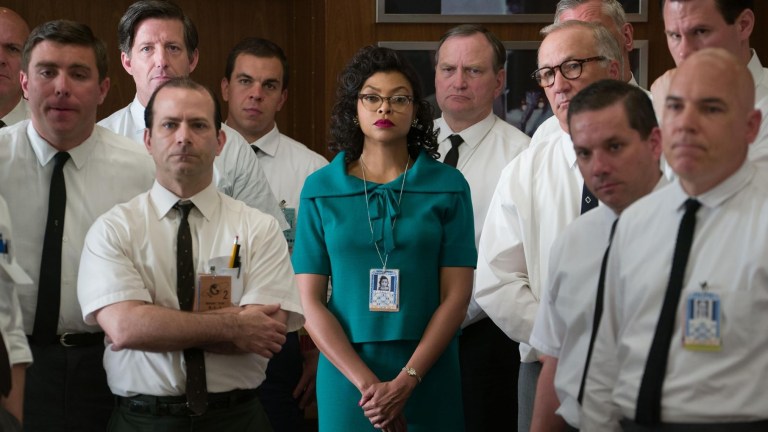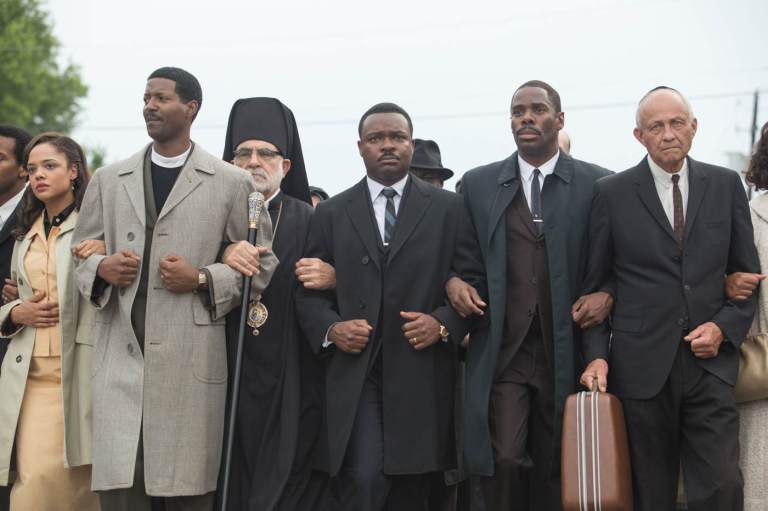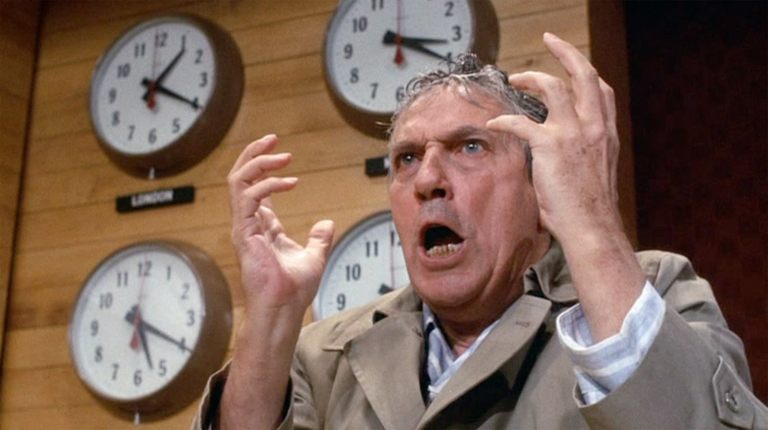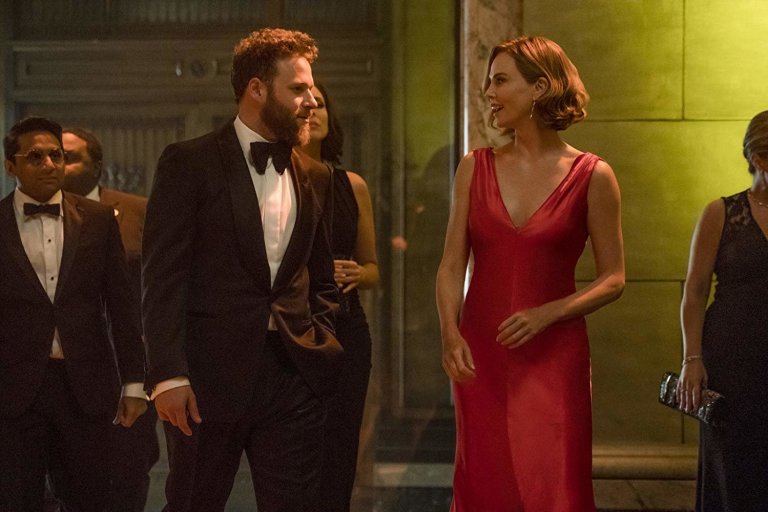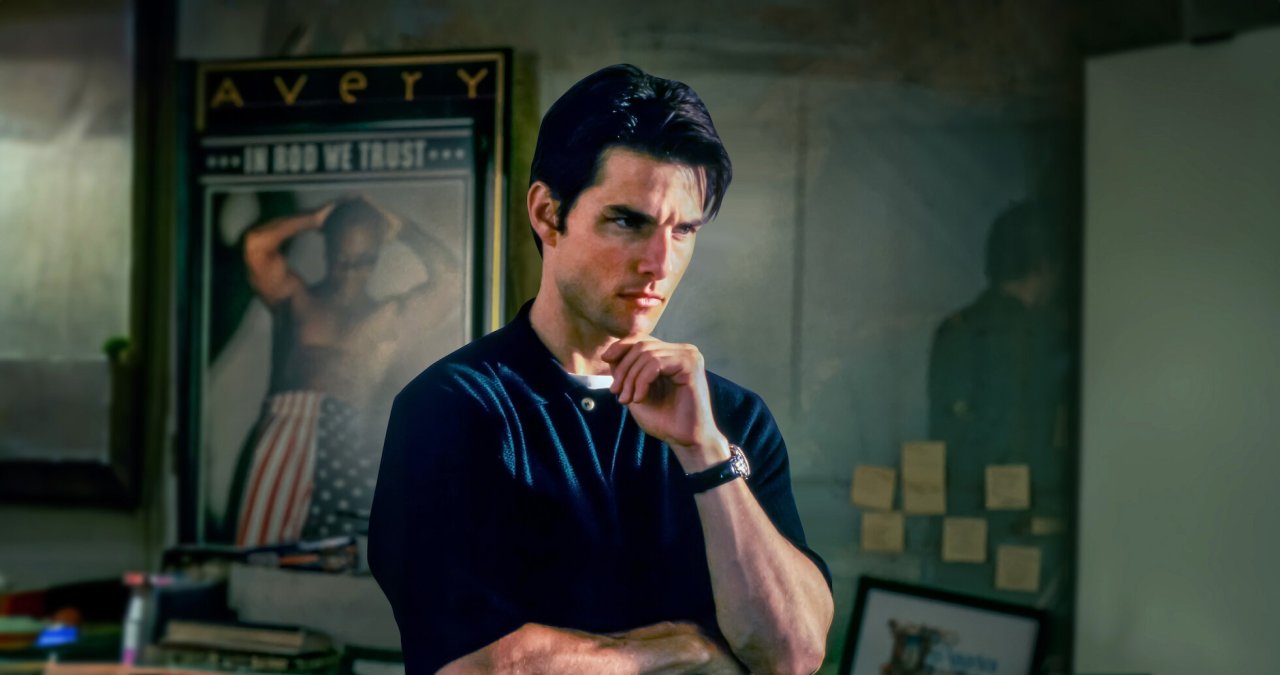
You Had Me At Tom Cruise – Why ‘Jerry Maguire’ Is Still His Best Role
Tom Cruise has built a career on running, flying, and dangling from airplanes.
But in 1996’s Jerry Maguire, he stopped long enough for us to see him sweat. Long before he became the face of impossible missions and record-breaking stunts, Cruise anchored a character study disguised as a sports movie. The result wasn’t just a hit. It showed audiences what happened when Hollywood’s golden boy let himself break apart on screen.
Jerry Maguire captured Cruise at a rare crossroads, not yet the stunt god of the 21st century, no longer just the Top Gun poster boy. It’s a film about contracts and clients on the surface, but at its heart, it’s about humility and a man stumbling toward his own moral compass. Nearly 30 years later, it serves as a brilliant portrait for a different kind of Cruise performance – one rooted not in spectacle but in vulnerability.
The Plot
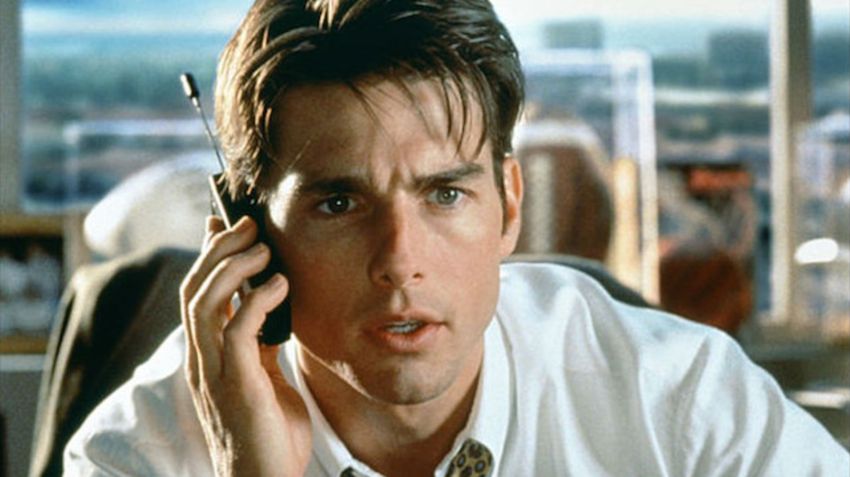
Jerry Maguire (Cruise) follows a high-powered sports agent whose crisis of conscience leads him to draft a late-night mission statement about caring more for clients than profits. The move costs him his job and most of his client roster, leaving him with a single loyal football player and an idealistic young assistant, Dorothy Boyd (Renée Zellweger). Together, they navigate the brutal sports business while Jerry struggles to rebuild his career, his personal life, and his own sense of integrity.
What begins as a story about deals and contracts becomes a fascinating tale of redemption, intimacy, and self-discovery, making it a romantic dramedy hiding inside a sports-world satire. Before Maguire, Cruise was a brand you could summarize in a single image – aviators, clenched jaw, windblown hair. He was the cocky young lawyer in A Few Good Men, the fighter pilot in Top Gun, the slick suit in The Firm. Even his darker roles hinted at invincibility.
But in the romantic comedy-drama sports film, Cruise becomes a startling contrast to the glossy action star persona, and critics noticed. He earned an Oscar nomination and, maybe more importantly, a recalibrated image. From that point on, audiences expected him to be more than a blockbuster lead. Jerry Maguire made room for Cruise to show fragility and gave viewers permission to see him as an actor, not just an icon.
A Film About More Than Sports
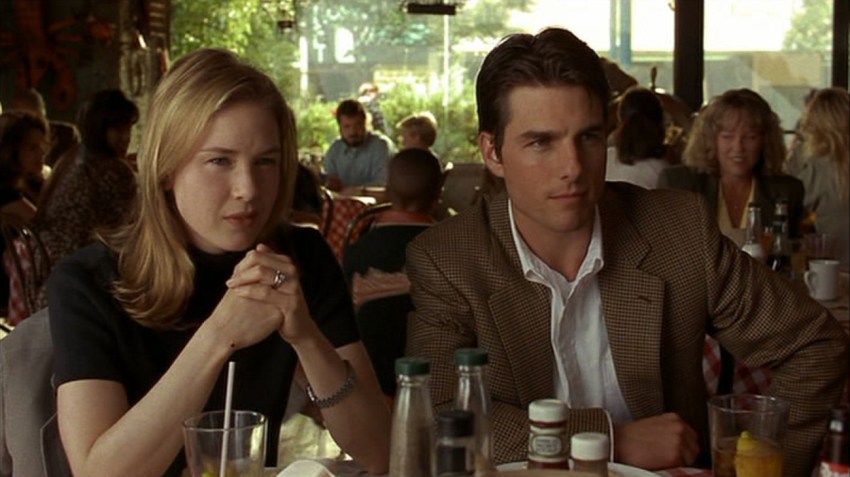
On the surface, Jerry Maguire is about a sports agent. But underneath, it’s a story about rebuilding a life stripped of status. The sports industry backdrop gives the film its adrenaline. But the emotional core belongs to its relationships. Dorothy’s quiet determination grounds Jerry because, unlike the other women in his before-life, she’s not just a love interest but a mirror reflecting his better self.
Jonathan Lipnicki’s pint-sized Ray supplies the film with an added warmth, reminding both Jerry and the audience what real loyalty looks like. The script critiques the hustle of endless phone calls and the obsession with money, while sneaking in a story about emotional risk and the courage to be sincere, no matter how much the world tells you otherwise.
In 1996, when self-help manifestos and corporate burnout were already part of the cultural conversation, the film landed like a wake-up call. It’s catchphrases like “Show me the money!” as much as anything romantic became shorthand for ambition and vulnerability in the same breath. That duality is why the movie still resonates with people who’ve never set foot on a football field.
Cruise Then vs. Cruise Today
Fast-forward to present day, and Cruise has become the high priest of practical stunts. He clings to airplanes, jumps off cliffs, and pilots real fighter jets. These feats are so audacious that they’ve become his brand. While it could be seen as a form of vulnerability, it’s physical rather than emotional. By contrast, the Cruise of Jerry Maguire was small, awkward, sometimes even pitiful.
Watching it now is like peeking behind the curtain of the myth the actor would later build. Does he still have that performance in him? Probably. But the modern brand prizes invincibility over humanity. Jerry Maguire reminds us there was a time when Cruise’s biggest risk wasn’t a stunt but a feeling. That range is part of his legacy, even if it’s less visible today.
What makes Jerry Maguire enduring is the way it lets us witness Cruise inhabiting a fully human character. The film doesn’t just ask us to root for Jerry professionally or romantically, it asks us to inhabit his interior life, to feel his missteps and triumphs as if they were our own. That intimacy is rare for any actor, and it’s precisely why this Cruise performance is his best.
